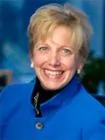To support the rule of law and to help fight hate crimes and violent extremism around the world, Jones Day co-sponsored the Eradicate Hate Global Summit 2021. Keynote speakers included President George W. Bush, former head of Homeland Security Tom Ridge, and current Secretary of Homeland Security Alejandro Mayorkas.
The inaugural Summit, held October 18–20, 2021, in Pittsburgh, was the brainchild of Laura Ellsworth, the Firm's Partner-in-Charge of Global Community Service Initiatives. With lead gift money from the Jones Day Foundation, and hundreds of hours of pro bono work by partners, associates, and staff, Laura and her fellow organizers were able to stage the in-person event, which featured more than 100 top people in the anti-hate field. Nine Jones Day lawyers also served as moderators and panelists.
In her column below, Laura explains the driving motivation for the event, its major takeaways, and its ultimate goal: practical, deliverable solutions to combatting hate worldwide.
"Never doubt that a small group of thoughtful committed individuals can change the world. Indeed, it's the only thing that ever has." — Margaret Mead
The pain and outrage over the horrific shooting at Pittsburgh's Tree of Life Synagogue in October 2018 that killed 11 people and wounded six others still echoes throughout the world. It was the largest loss of life in an anti-Semitic crime in U.S. history. For those of us in Pittsburgh, the loss of life was personal. We lost people we loved that day. We comforted friends whose parents died in their arms, and others whose special-needs brothers died trying to save one another as the hail of bullets enveloped them. With a killer yelling, "All Jews must die," and who targeted this synagogue because of its work with refugees, we understood what it was like to have our entire community and the values we hold dear under attack.
But though the attack killed and wounded, it did not defeat us. In the days after the massacre, every corner of the Pittsburgh community stepped up to stand strong against the hate that had manifested itself on that horrific day. Jews, Muslims, Sikhs, Christians, Hindus, and Buddhists prayed arm in arm outside the synagogue; vigils were led by people of diverse races, ethnic backgrounds, economic status, genders, generations, and political viewpoint. Everyone in Pittsburgh looked for what they could do to fight back against what had attacked all of us that day.
"What I Had was Jones Day"
Like everyone else in Pittsburgh, I spent the hours and days after this tragedy looking inward and asking "What can we do to transform these deaths of people we loved into a force for powerful change? How do we make Pittsburgh remembered more for how we responded to the tragedy, rather than being merely its site? What do I have to bring to the table to fight this kind of hate and extremism?" What I had was Jones Day.
Jones Day's Hate Crimes Task Force, chaired by Andy Luger, Shirlethia Franklin, and Barbara Harding had significant contacts throughout the United States. Our Anti-Human Trafficking work had connected us with law enforcement organizations around the world and with platform companies here at home. Jones Day's leadership of multiple institutional initiatives had taught us effective mechanisms for moving an entire field forward, including a structure for organizing global experts into a concerted course of action that produces tangible results. It was a tactical approach designed by great trial lawyers: Collect the best talent with the right skillsets, develop the themes and the strategy, and then execute the plan. Don't just talk, act.
In that spirit, the idea for a new institution, to be based in Pittsburgh, was born: a multidisciplinary institution that would be the most significant anti-hate rule of law organization in the world.
That kind of vision takes financial backing, so the Jones Day Foundation was the first stop. With the Foundation's lead gift of $100,000, we approached the major foundations of Pittsburgh and, within a month, had raised the $1.3 million needed to launch. Over the next two and a half years, that funding was augmented by a remarkable outpouring of pro bono support from lawyers across the Firm, ultimately exceeding $2 million in value of incurred time, from litigators, corporate lawyers, trademark specialists, GDPR experts, and many others, in virtually every office of the Firm.
Standing Together in Pittsburgh
The inaugural Eradicate Hate Global Summit was held October 18–20, 2021. More than 100 of the top people in the world in the anti-hate field came to Pittsburgh in person, to identify specific solutions that will be the focus of working groups throughout the coming year, with the achievements to be reported out one year from now.
The last 18 months have seen a dramatic rise in hate crimes of all types around the world—anti-Semitic, anti-Asian, anti-Black, anti-immigrant, anti-Muslim, anti-LGBTQ, anti-Sikh, anti-women, anti-Christian, and more. Driven by social and economic changes, exacerbated by the isolation and uncertainty of COVID, and accelerated by social media, the proliferation of incitement to violence has become its own pandemic. And the summit addressed all of these aspects of hate-fueled violence.
In this polarized world, we know that these problems are enormously difficult and complex, and we know they will only be solved by people who put in the time, effort, and elbow grease to understand all facets, identify where progress can be made, engage in hard discussions, and then roll up their sleeves and work together to get it done. It takes strong and visionary leadership for that to happen, and it was Jones Day that provided that leadership in spearheading the design and implementation of this summit. Though that kind of leadership is nothing new for the Firm, these are particularly challenging issues in particularly fraught times, making this is a powerful moment in the history of Jones Day.
Click here for the full agenda of the Eradicate Hate Global Summit 2021.
In addition to the keynote speakers, the other participants were representatives of the significant platform companies, including Facebook, Google, Microsoft, GIFCT (the Global Internet Forum to Counter Terrorism), YouTube, and Twitter, as well as victims of hate crimes including Michele Rosenthal (whose brothers had been killed at Tree of Life), Tanya Gersh (a Jewish housewife who successfully sued a prominent neo-Nazi for unleashing a campaign of harassment on her and her family), Taylor Dumpson (who made new law on public accommodation when she was the subject of racial hate crimes at American University), and Dawn and Rick Collins (whose son, Lieutenant Richard Collins, was stabbed to death by an avowed racist.)
Neuroscientists, computer scientists, lawyers, police officers, judges, representatives of the EU Commission, former members of the KKK and other extremists groups, reporters, mental health and trauma doctors, and Holocaust survivors sat together to craft more effective mechanisms to interdict violence and to help people dissociate from extremist organizations.
Throughout, Jones Day lawyers played prominent roles as moderators, panelists, and summit ambassadors. Washington partner Shirlethia Franklin moderated two panels, including "Rule of Law: Novel Civil Remedies to Combat Hate." That was followed by Minneapolis partner Andy Luger leading a panel on "Criminal Remedies," which featured partners Eric Dreiband of the Washington Office and Justin Herdman of the Cleveland Office. Judge Ann Claire Williams of the Chicago Office spoke about "Improving the Judicial System to Address Extremism." Washington partner Barbara Harding reported on efforts by a coalition of law firms to thwart the actions of extremist militia groups. Alexander Maugeri of the New York Office discussed the "First Amendment and the Communications Decency Act." Los Angeles partner Rasha Gerges Shields led a discussion about the "Global Government Response," while former Jones Day partner Brian Sun traveled to Pittsburgh to host a panel on "Anti-Asian Hate Crimes."
In this video, Jones Day lawyers who participated in the inaugural Eradicate Hate Global Summit talk about the vision and goals of the conference. Click here.
Next Steps
Arising as a result of the Firm's leadership on these issues is the creation of The Collaboratory Against Hate: Research and Action Center, a joint institution of The University of Pittsburgh (with its outstanding social and medical sciences and law school) and Carnegie Mellon University (with its world-class computer science capabilities.) Over the next two years, Jones Day will be transitioning the summit to the Collaboratory, which will become the permanent, brick-and-mortar institution housing this ongoing work.
The inaugural 2021 summit drew more than 1,500 people, both in person and online. It will be even bigger and better next year. We are currently in the process of organizing the working groups and have been struck by the energy and enthusiasm of the participants—some of the most prominent people in their field who, to a person, say they have never seen anything like this and cannot wait to be a part of it. Over the next year, our plan is to unite this extraordinary group and actually move the needle in the fight against violent extremism.
We are not naïve enough to think that we can truly "eradicate" hate. The violence born of hate will not end in my lifetime, nor in yours. But the magnitude of the task does not dissuade us, and the time to begin this work is now. Thanks to the unprecedented leadership of Jones Day, the institution that we are building here in Pittsburgh will continue for however long it takes. Our small, thoughtful group of committed citizens is committed to changing the world. Together, that is precisely what we are going to do.
Read the full issue of ONE Connection.
The content of this article is intended to provide a general guide to the subject matter. Specialist advice should be sought about your specific circumstances.


